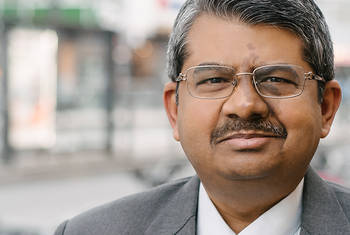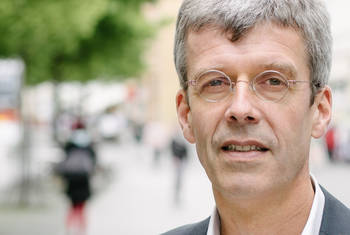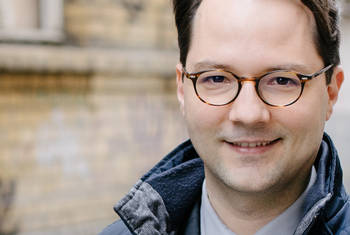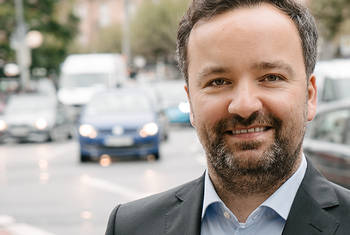Rahul Mukherji How Does India Achieve Change in Its Policies?
Rahul Mukherji is Professor and Head of the Department of Political Science at the South Asia Institute of Heidelberg University. Some of his previous affiliations include the University of Singapore and Jawaharlal Nehru University, New Delhi. Furthermore, he has undertaken research at Columbia University and City University New York and the Australian National University, Canberra. He is specialized in comparative politics, international relations and governance in South Asia. Twice, he has won the Award for Research Excellence of the National University Singapore.
Area of Research
Comparative Politics, International Relations, Governance, South Asia
since 2017
Deputy Director
Heidelberg University (Ruprecht-Karls-Universität Heidelberg)
South Asia Institute
since 2016
Professor and Head
Heidelberg University (Ruprecht-Karls-Universität Heidelberg)
Department of Political Science, South Asia Institute
2008-2016
Associate Professor
National University of Singapore
Institute of South Asian Studies
2014-2015
Honorary Senior Fellow / Head of Research
National University of Singapore
Institute of South Asian Studies
2006-2008
Associate Professor
Jawaharlal Nehru University, New Delhi
Centre for Political Studies
2004-2004
Associate, Saltzman Institute of War and Peace Studies
Columbia University, New York
2003-2006
Assistant Professor
Jawaharlal Nehru University, New Delhi
Centre for Political Studies
2001-2003
Fellow
Rajiv Gandhi Foundaton, New Delhi
1999-2001
Assistant Research Professor
Centre for Policy Research, New Delhi
since 1999
Visiting Lecturer
University of Vermont
Department of Political Science
1999
PhD
Columbia University, New York
Department of Political Science
1992
Master of Philosophy
Jawaharlal Nehru University, New Delhi
School of International Studies
1990
Master of Arts
Jawaharlal Nehru University, New Delhi
School of International Studies
1988
Bachelor of Arts
Delhi University
Depatment of Economics
Prizes
- National University of Singapore Award for Research Excellence (2012, 2014)
- NUS Award for Research Excellence, Office of Deputy President (Research and Technology) (2012, 2014)
Fellowships
- Visiting Fellow, Australia South Asia Research Centre - Economics Division, Research School of Pacific and Asian Studies, Australian National University, Canberra (2002)
- President’s Fellow, Graduate School of Arts and Sciences - Columbia University, New York (1997-1999)
India has been known to be a state that never changes. Since the 1980s, and especially after the 1990s, however, India’s growth trajectory has begun to evolve and change from its static status quo. RAHUL MUKHERJI has investigated the reasons for this change, as he explains in this video. For this, he looked at historical processes and compared processes that have achieved successful change to processes that have failed to achieve change. He found that India performs despite its slow developments in policies because they gradually achieve a consensus among political and social actors. Once this critical mass of ideas has been reached, changes in policies occur, for instance in the area of welfare policies, such as the implementation of the National Rural Employment Guarantee Scheme.
LT Video Publication DOI: https://doi.org/10.21036/LTPUB10531
Is India a Developmental State?
- Rahul Mukherji
- The Asian Developmental State: Reexaminations and New Departures
- Published in 2016
Governance Reform in a Weak State: Thirty Years of Indian Experience
- Rahul Mukherji
- Governance
- Published in 2016
Globalization and Deregulation: Ideas, Interests, and Institutional Change in India
- Rahul Mukherji
- Published in 2014
Political Economy of Reforms in India: Oxford India Short Introductions
- Rahul Mukherji
- Oxford India Short Introduction
- Published in 2014
Bureaucratic Rationality, Political Will and State Capacity: The Mahatma Gandhi National Rural Employment Guarantee Scheme (MGNREGS) in Andhra Pradesh
- Rahul Mukherji and Himanshu Jha
- Economic and Political Weekly
- Published in 2017








